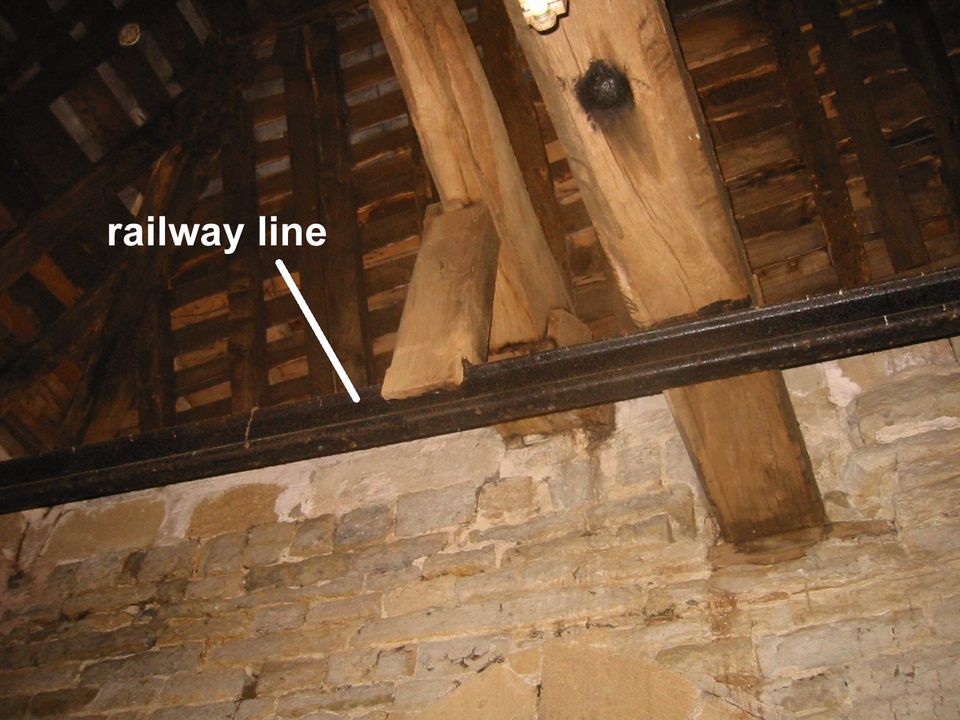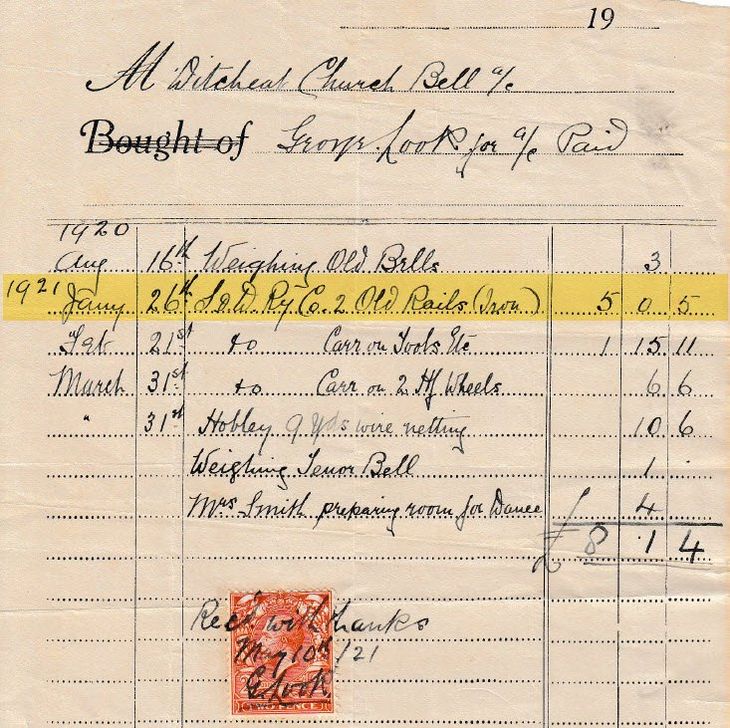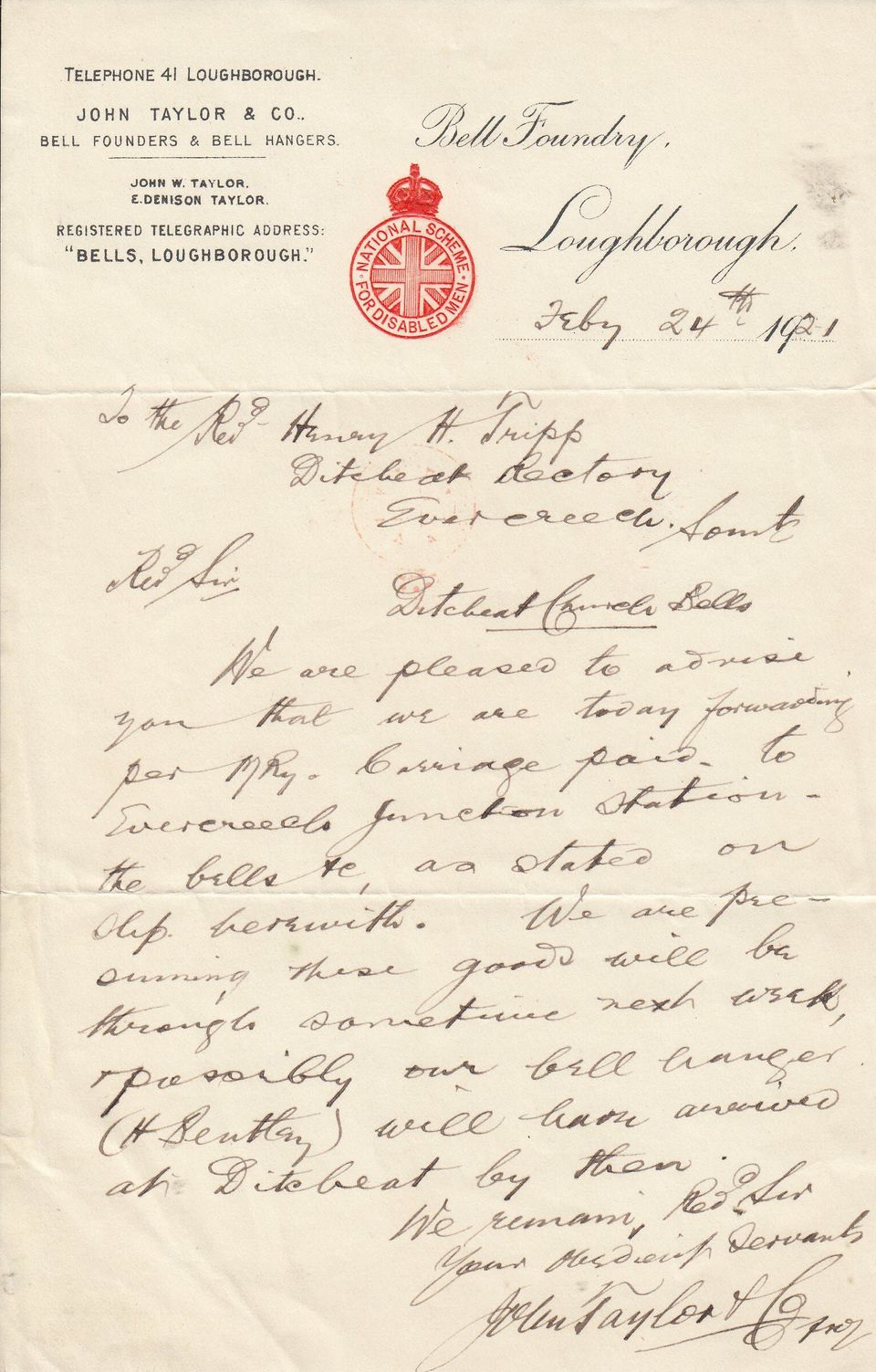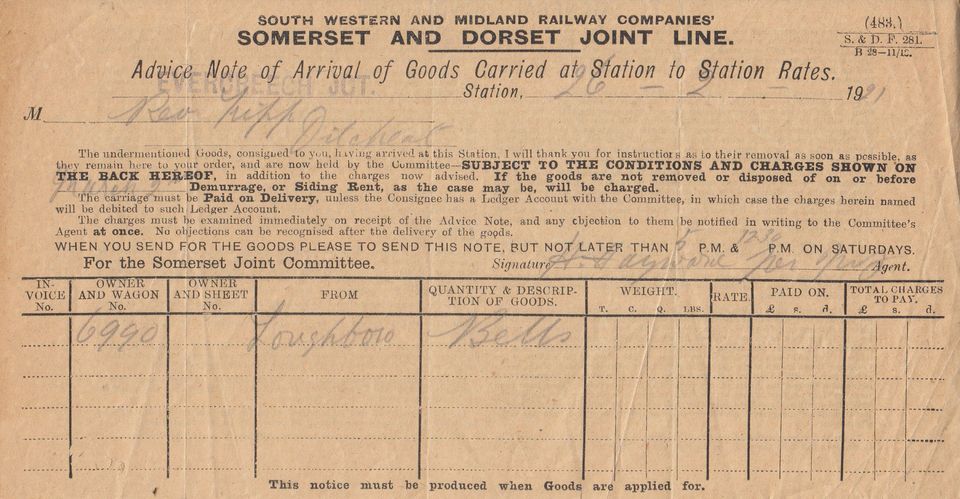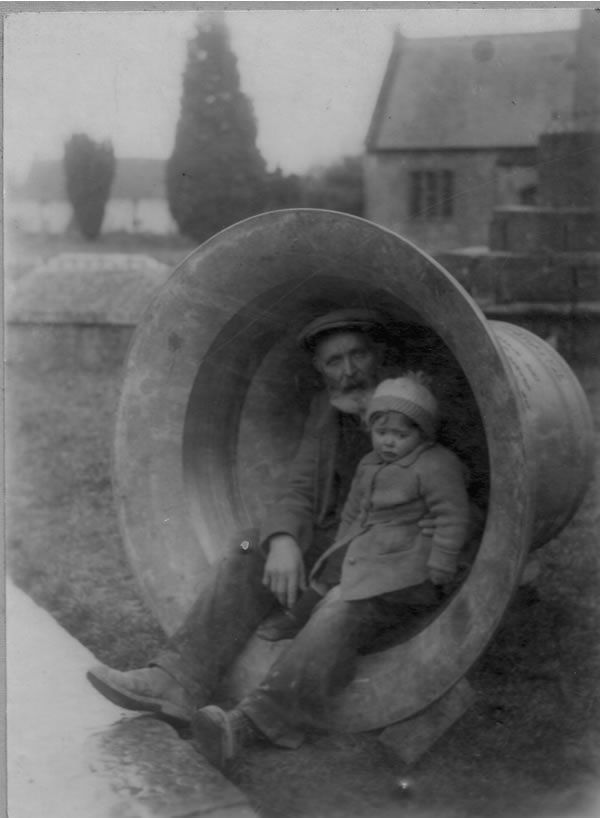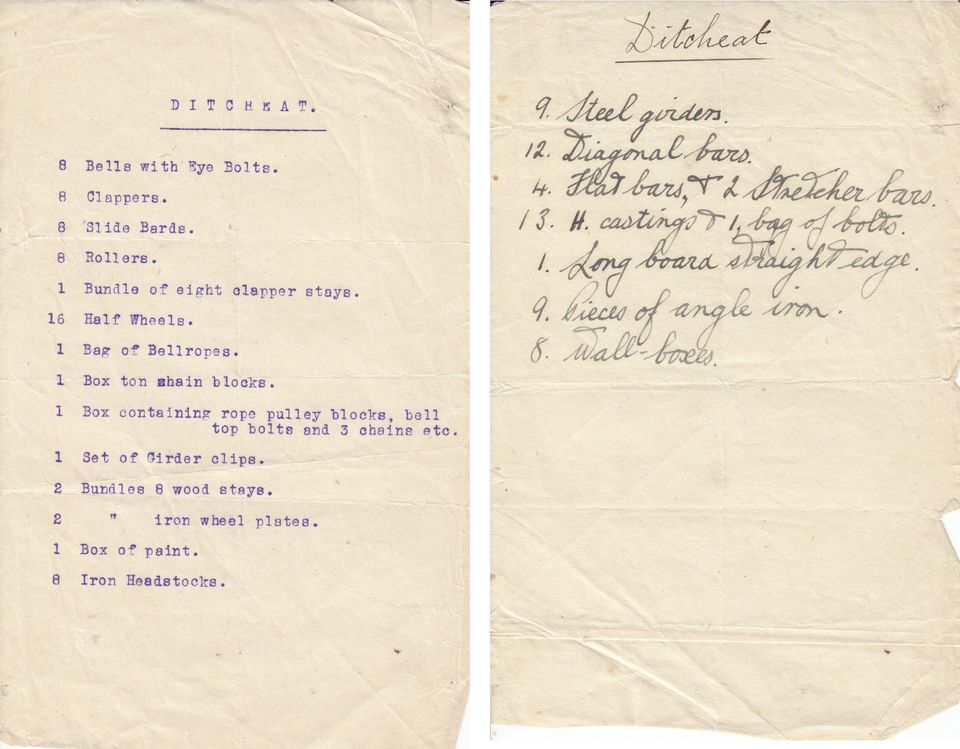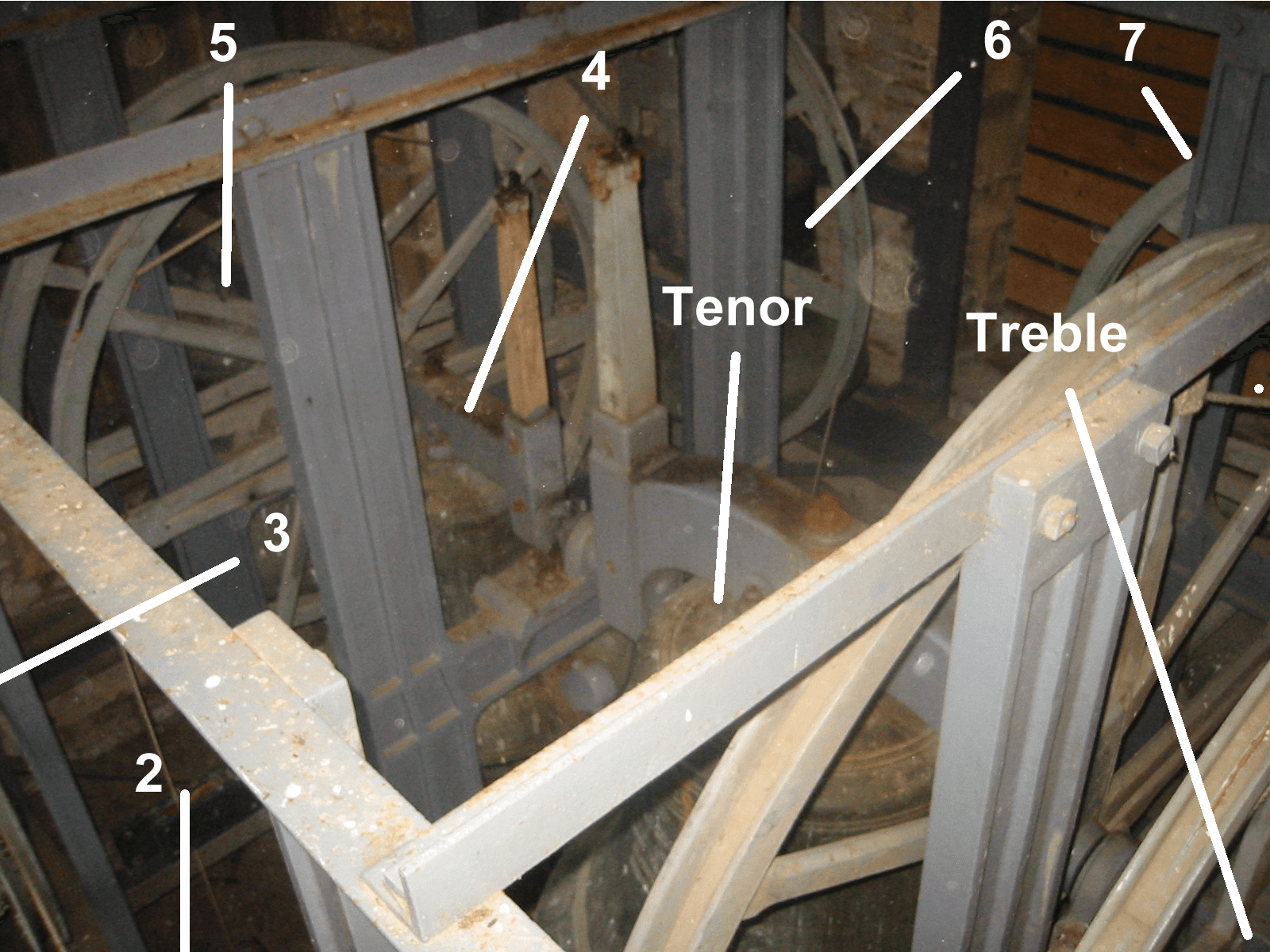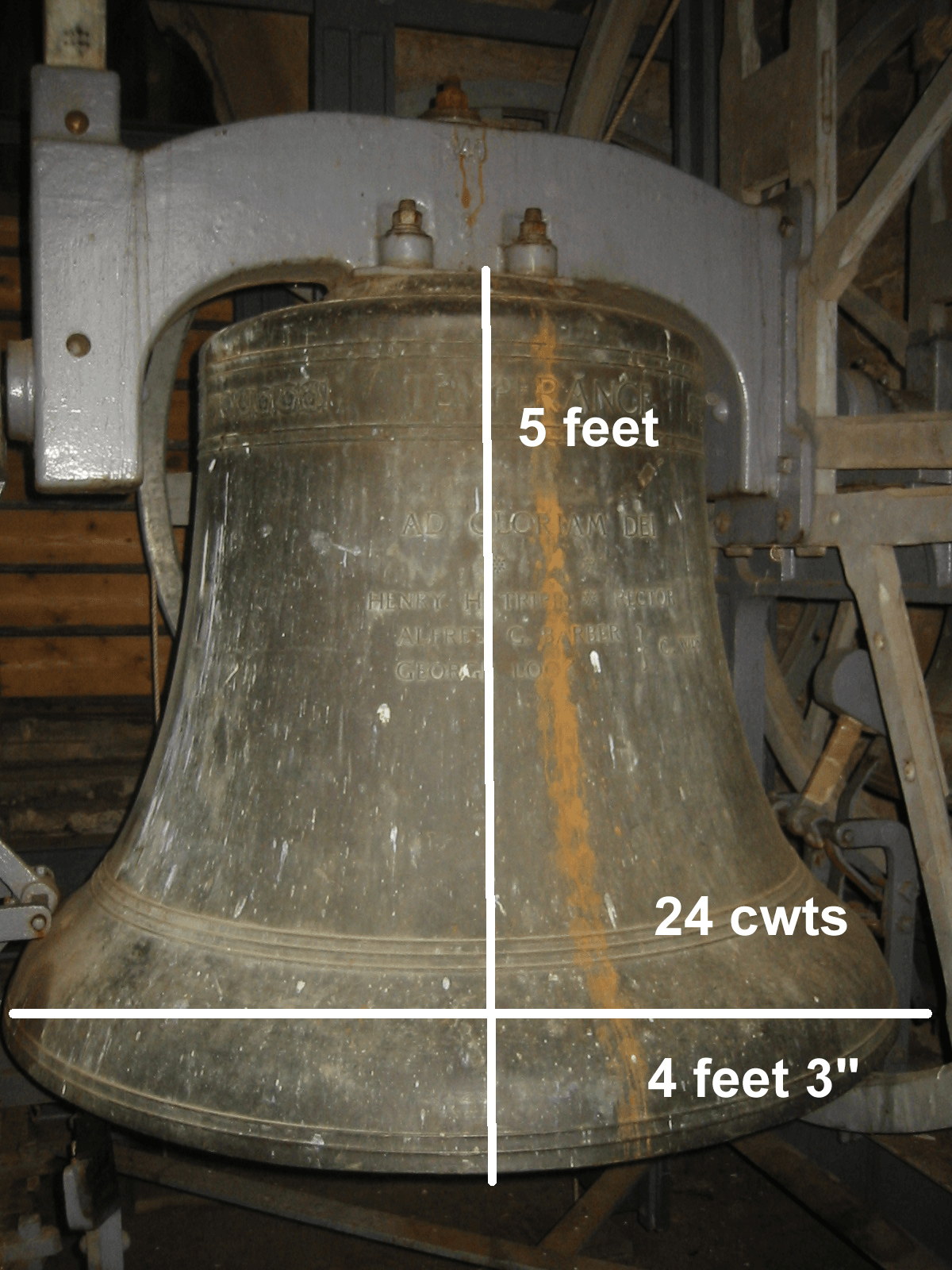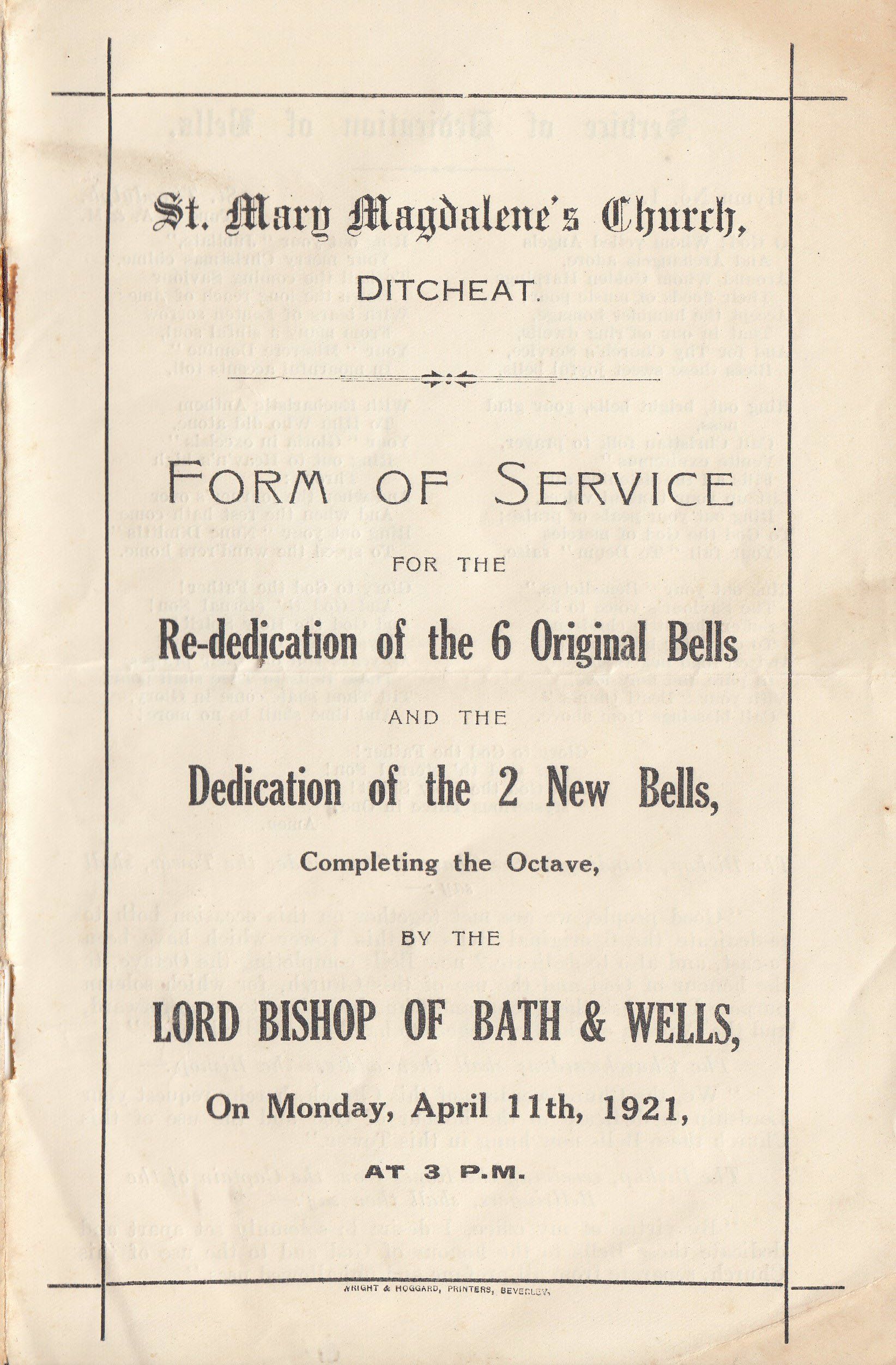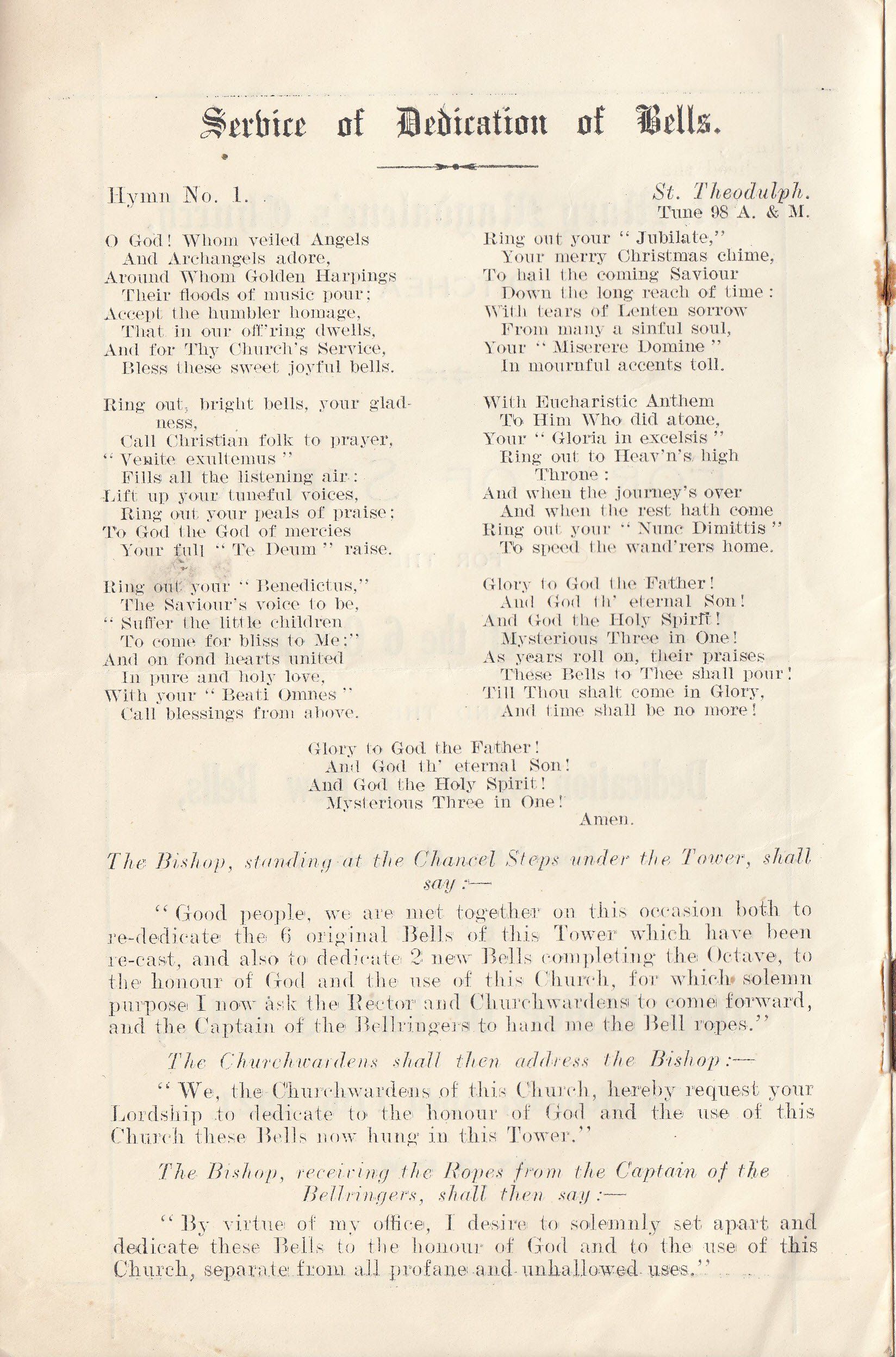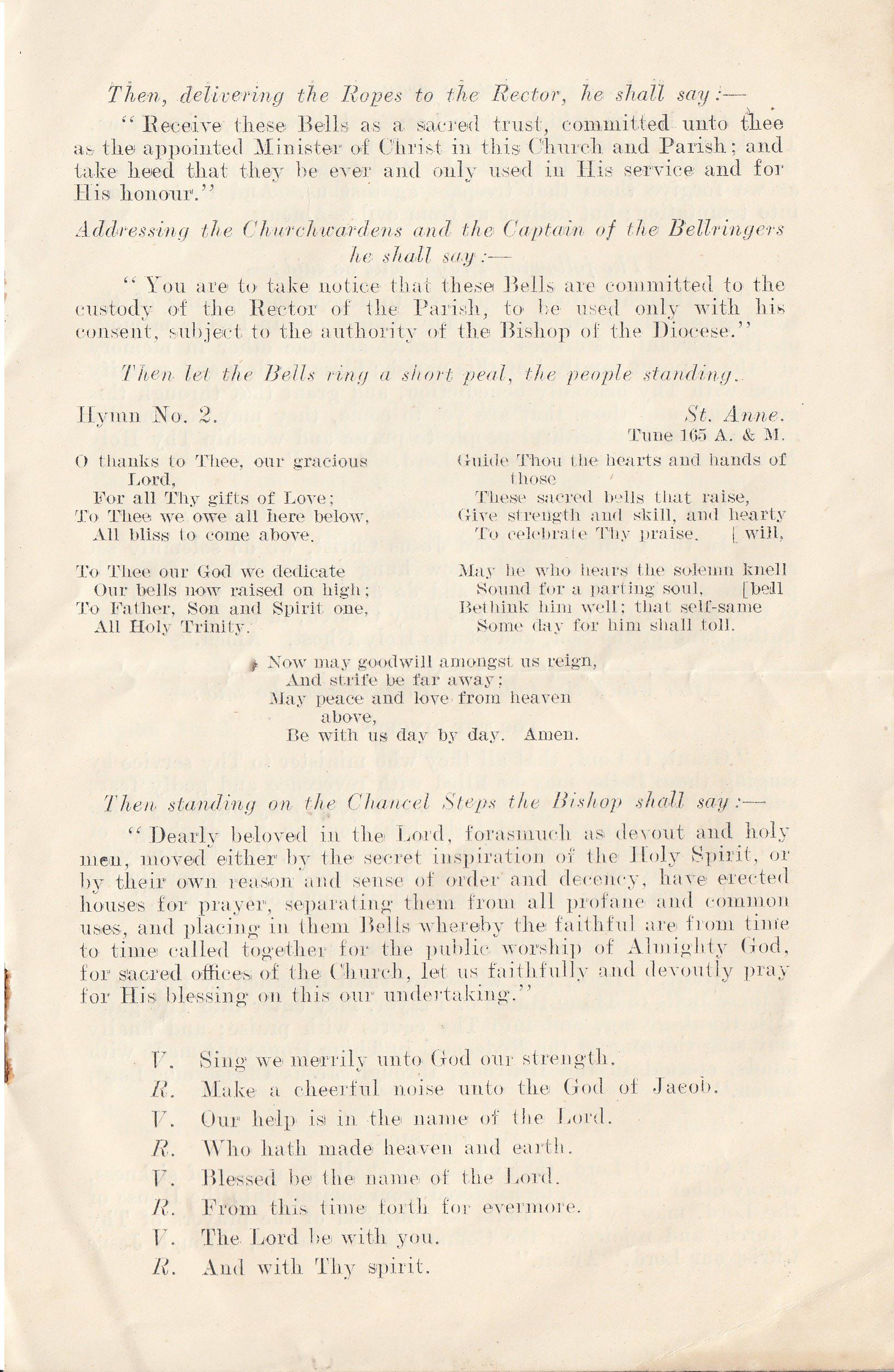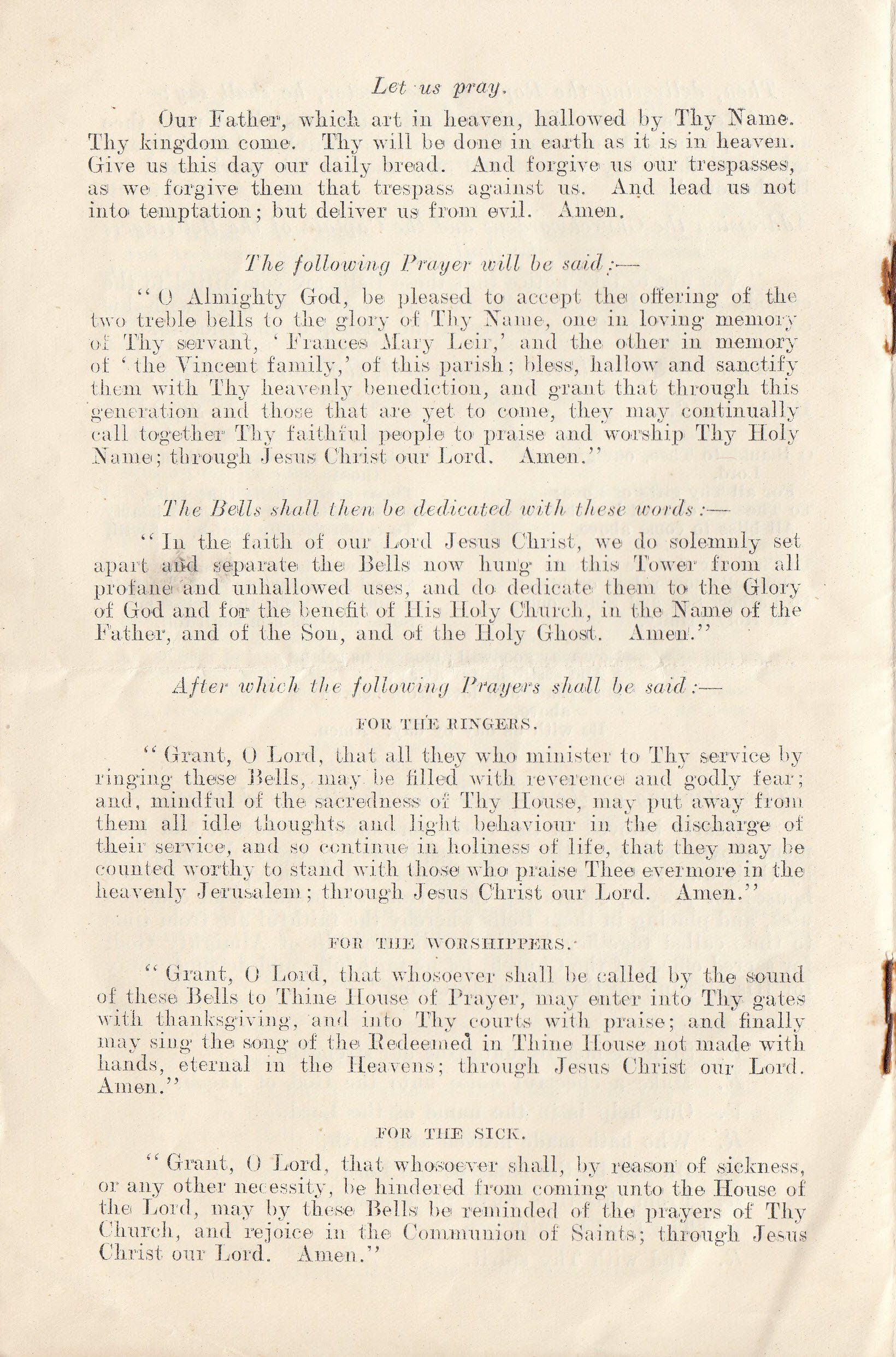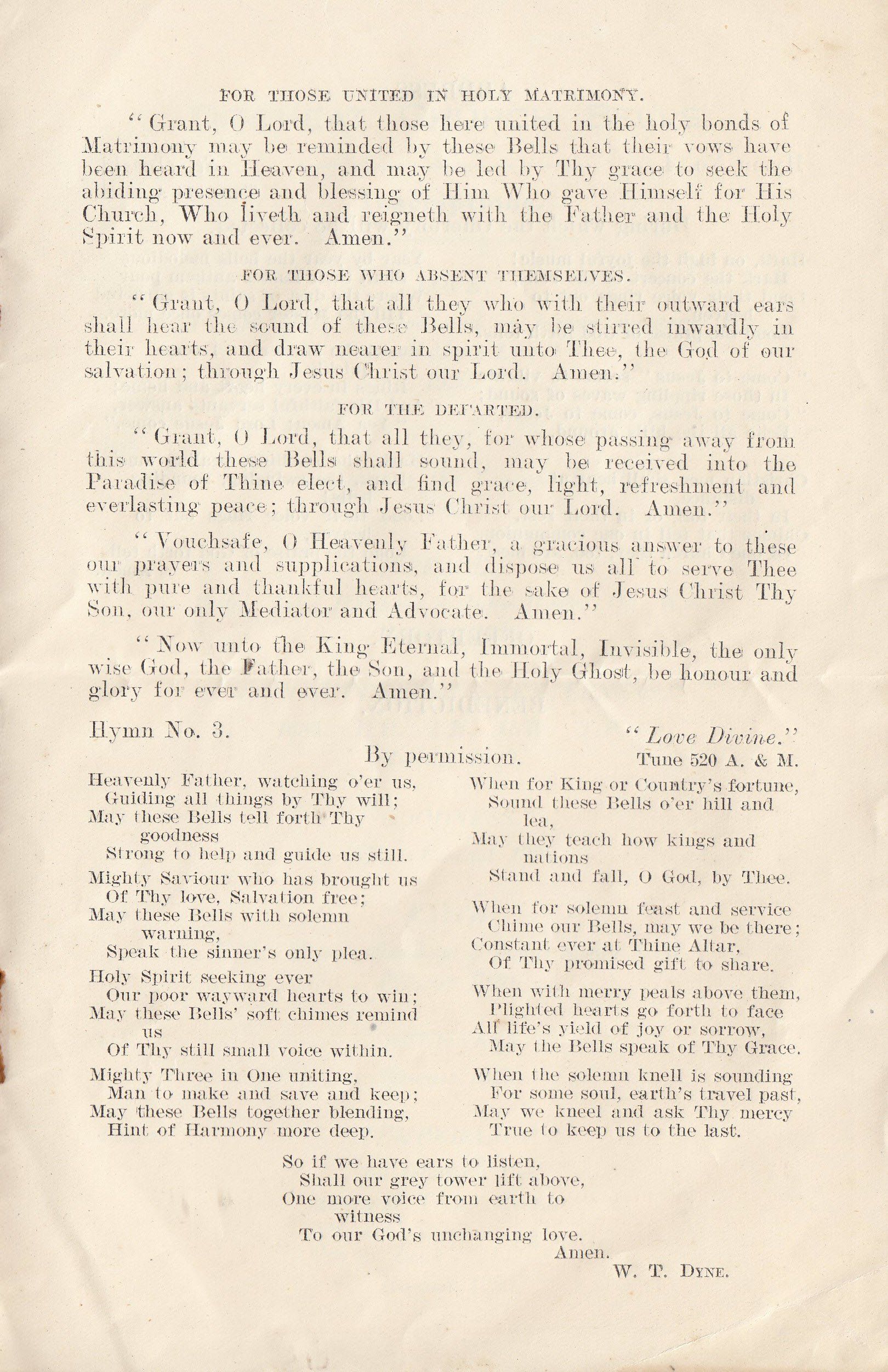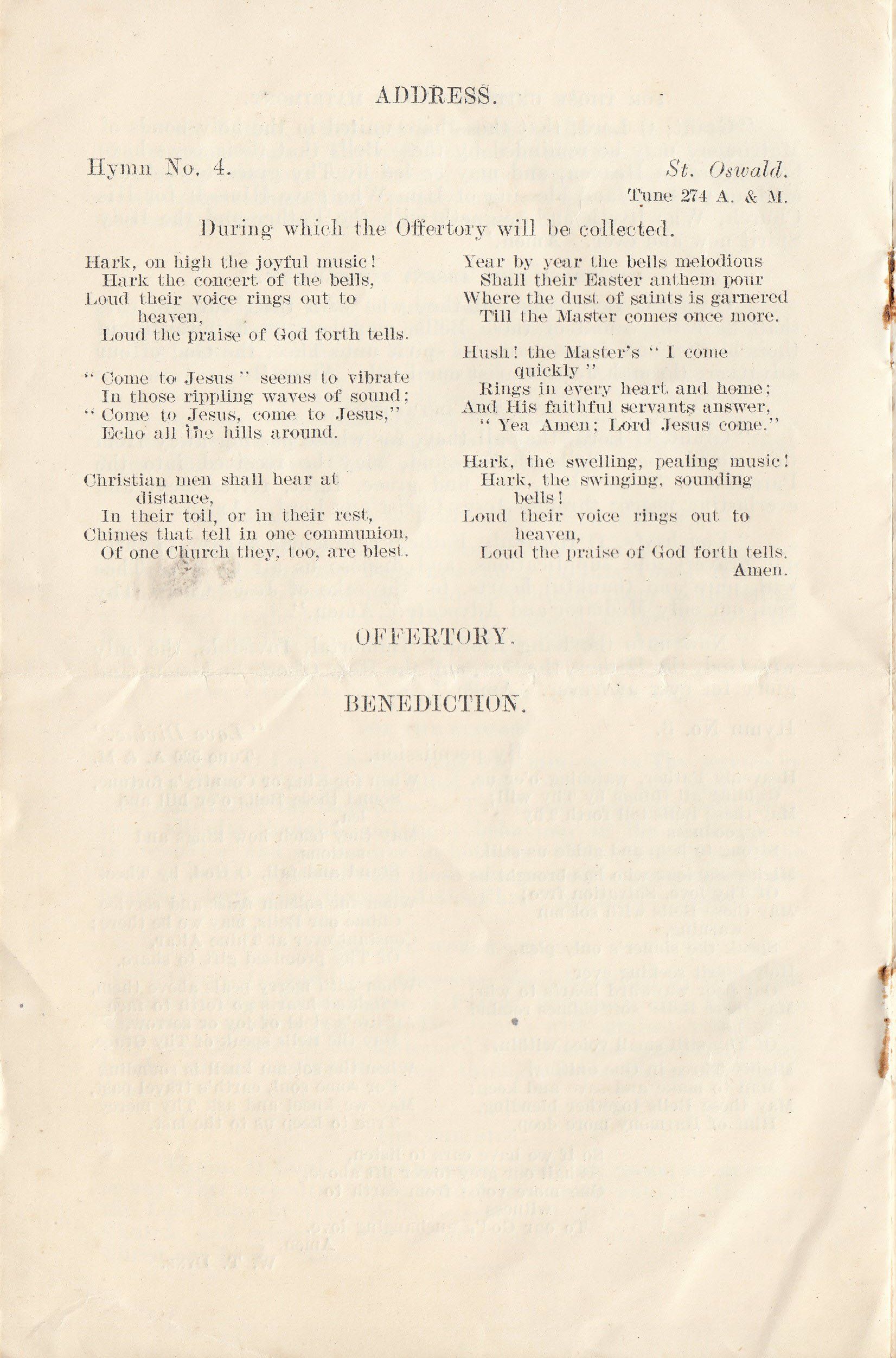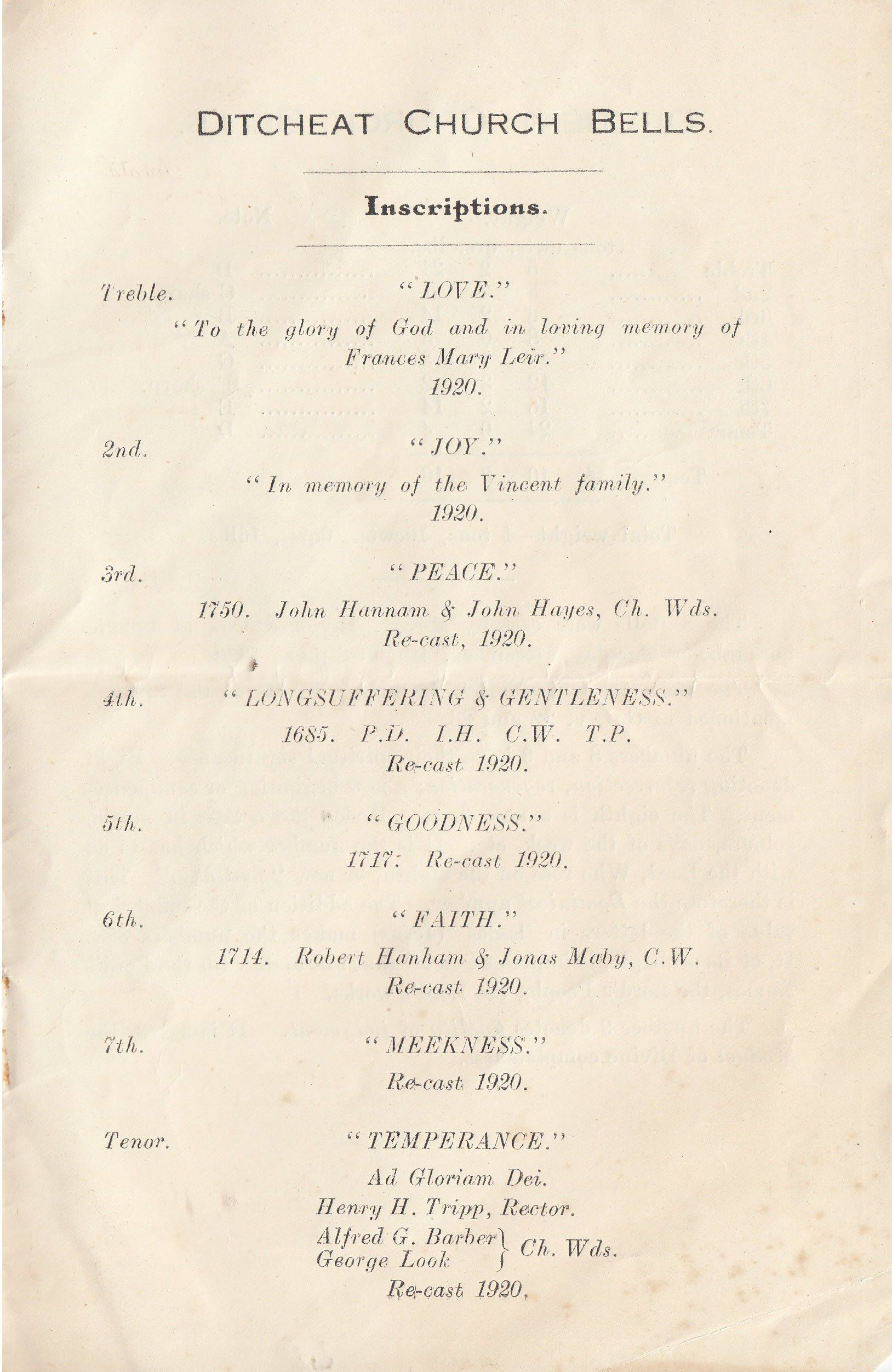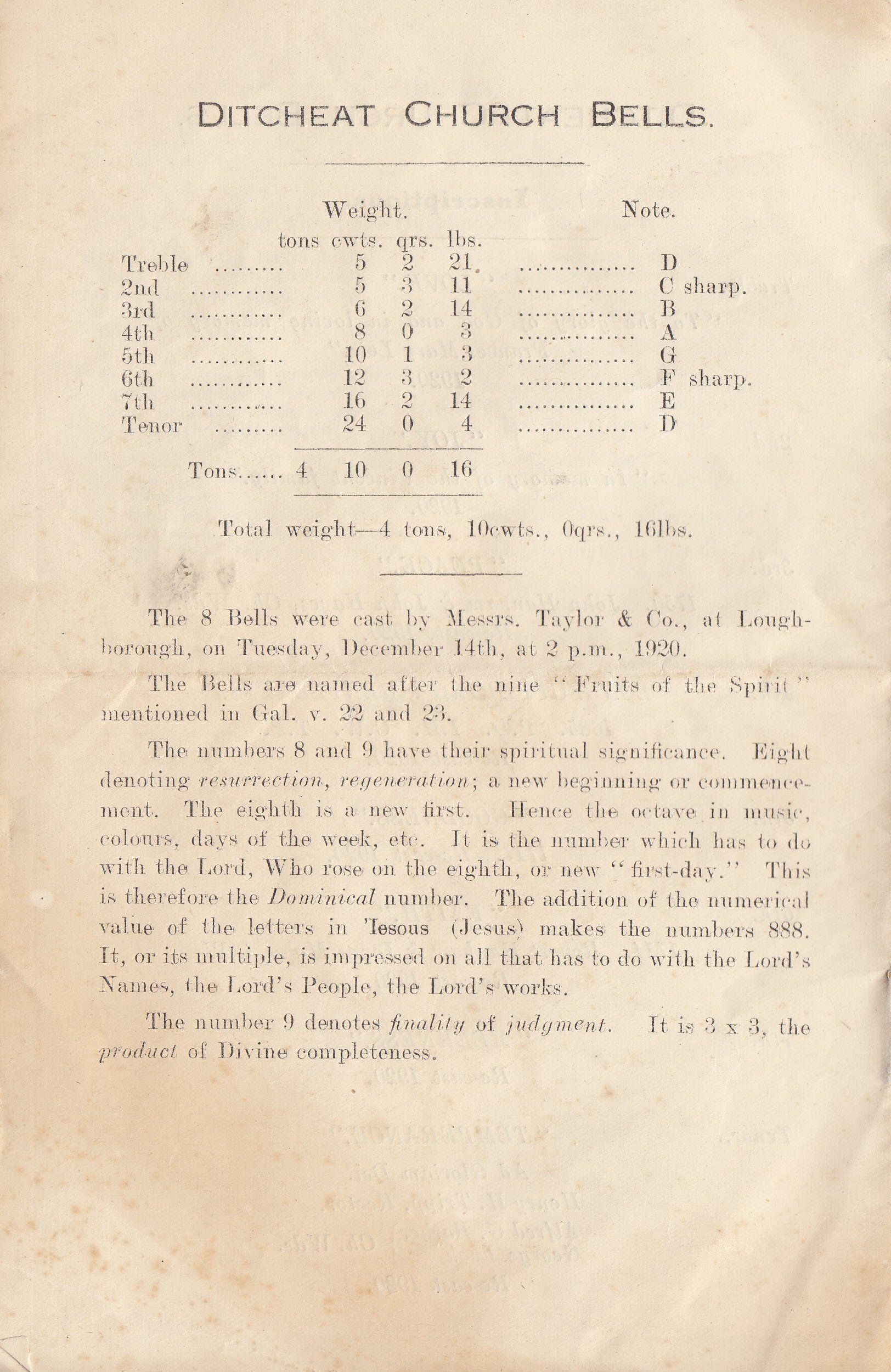Taylors despatch the bells 24th Feb 1921 and rehang in the tower
Preparation for the new bells was made, 2 lengths of railway line were installed high in the tower to hang the block and tackle to hoist the bells.
This invoice from farmer George Look is evidence of the purchase from S&D Rwy Co for £5 0s 5d dated 26 January 1921
Taylor's wrote on 24th Feb that the bells were being dispatched and the Bentley (the bell hanger) would be arriving in Ditcheat.
At last confirmation "the Bells have arrived" 26th Feb 1921
Bentley the bell hanger pictured in the churchyard with the "tenor bell"
The despatch notes for the consignment.
A selection of pictures of the bells today, the expertise of Taylors to design a precision frame that would hang the bells is evident in these images, note the tight fit within the tower walls, in places the stone had to be dressed to accommodate the heavy H frames,
The Dedication Service was held on April 11th 1921, click through the pages
Shepton Mallet Journal - Friday 08 April 1921
Image © Reach PLC. Image created courtesy of THE BRITISH LIBRARY BOARD.
DEDICATION OF BELLS AT DITCHEAT,
THE BISHOP OF THE DIOCESE.
A right royal welcome was given the Lord Bishop of the Diocese, at Ditcheat, on Saturday afternoon last, when he visited the ancient Parish, tucked away in the valley, to dedicate the Church bells. From almost time immemorial Ditcheat has proudly acclaimed its bells and ringers; and no wonder, when piloted by such staunch men as good old Tom Vincent, and now his son, Mr. Tom G. Vincent, captain, of the belfry. Hitherto the village has only been able to boast of six bells, but now the full complement of eight hang proudly in the grand and staunch tower. The two new bells have been added respectively in memory of Frances Mary Leir, and members of Vincent family. The Church was crowded its fullest capacity for the dedication service, extra forms being provided to accommodate the visitors, who came from Shepton Mallet, Wells, and surrounding district. At three o'clock the clergy entered at the West door, all robed, and presenting an imposing sight as they passed down the aisle to the Chancel, followed by the Lord Bishop and his Chaplain, carrying the pastoral staff. The clergy present included ; —The Rural Dean. Rev, Prebendary C. W. Bennett, Vicar of Pilton ; the late Rector of Ditcheat. Rev. C. E. Leir, M.A. the Rector of Ditcheat, Rev. Henry Howard Tripp, M.A ; Rev. Prebendary D. M. Ross, M.A., vicar Castle Cary ; Rev. Preb. H. E. Make, M.A vicar St. Cuthbert's, Wells; Rev. C. Browne. L.L.D., Rural Dean, vicar Chew Magna; Rev. H. J. Ker Thompson, M.A. vicar of Publow and Pensford ; Rev. G. F. C. Pippin,M.A. vicar of Marston Magna ; Rev. F. S. C. Lock, M.A, vicar of West Pennard ; the Ven. Archdeacon Palmer, M.A , of Southern India ; the Rev. Preb. T. F. Palmer, M.A, vicar of Witham Friary ; Rev. R. R. Luxton,B.A., rector East Pennard; Rev. A. Barnes, B.A., rector of Lamyatt; Rev. R.Y. Bonsey M.A., vicar Evercrecch; Rev. Preb. D. L. Hayward, M.A, vicar of Bruton ; Rev. C. E. Wilson, M.A , rector of Charlton Musgrove : Rev. F. H. Taylor, B.A., rector of West Lydford ; Rev. J. W. Werninck, rector Weston Bampfyldc ; Rev. C. E. Pizey, rector of Huntfspill : Rev. F. P. Synge, B.A, vicar of Pitcombe; Rev. G. H. Ford, vicar of North Wootton.
The service commenced with the singing the hvmn, “O' God ! Whom veiled Angels and Archangels adore," after which special form of dedication service was used. The Bishop standing at the Chancel steps under the tower, said : “Good people, we are met together this occasion both to re-dedicate the six original bells of this tower which have been re-cast, and also dedicate two new bells, completing the octave, to the honour God and the use this Church, for which solemn purpose I now ask the Rector and Churchwardens to come forward, and the captain the Bell ringers to hand me the bell ropes”. This having been done the Bishop said. “By virtue of my office. I desire to solemnly set apart and dedicate these bells to the honour God and to the use of this Church, separate from all profane and unhallowed uses.” Otherr directions and prayers followed.
BELLS AND MINERS
The Bishop ascended the pulpit during the singing of the hymn “Heavenly Father, watching o'er us, Guiding all things by Thy will." Basing his remarks from Philippians iv., 4. his Lordship delivered a very earnest address. There could no question at all, said, about the fact that St. Paul went through almost every kind hardship and experience that any man could be called upon to endure, for the sake the Lord Himself, and yet he never lost that feeling of joy and happiness which seemed always to uplift him wherever he was, and whatever happened to him. The text, “Rejoice in the Lord always. and again I say Rejoice," suggested to them that they should bear in mind, that God called upon us to rejoice, notwithstanding all the difficulties and troubles which beset them in the course of life. They must not let their lives be bowed down with difficulties and trouble, but rather by looking up to God. remember that there was always a great deal for which they might each rejoice. They had just been singing in one their hymns, “Now may goodwill amongst reign, And strife be far away." Surely these words had special significance that day, when they had heard such sorrowful news from over the greater part of the Country, of the extraordinary action taken by the leaders of the miners in the North, and by the miners generally all over England, knowing well what misery their action would bring, not only to themselves, but to the whole nation. They were tempted ask. " What can we do to help put the thing right ?” Up with your hearts, said his Lordship, and as St. Paul said "Rejoice”. They must lift their hearts, remembering all. that the Lord had done for them, and try make other people see how they too could rejoice, in rejoicing. Did they think that if really saw these miners face to face, and one by one, would find them bent doing all the mischief they could. He dared say that some of them present had great sympathy with the men who continually worked in the great darkness; he had himself. And when they thought of these men working in the dark all through the day, and the extraordinary conditions under which they lived, bearing as they did just the hardships and difficulties of their own people, was it any wonder that one or two of them were tempted to become suspicious and over selfish ? He though not. If only we could produce a better spirit of brotherly love and care for others, it would be best for all of us, not only for the selfish ; and he thought on those lines the men might be won over. At present they were so bound by their own trouble, as if by a yoke of iron, that they were not quite themselves, and were standing by their leaders, who they thought were best able to pilot them through the difficulties. I dare say, said his lordship, that our hearts are filled with pity for them, and so they ought to be; because it's a very difficult position in which they live. They were lead away to take so misguided, and unfortunate a course they had taken. God help them, and us, because all would suffer for their foolish—he was almost inclined to say wicked—step. But when they just thought of how their bells rang out dolefully or joyfully, according the various offices of the Church, ought they not to strive to be more like them in lifting up the hearts of others about them,. and live in tactful harmony and brotherly love, careful for the sufferings of others as well as for themselves. He hoped that their bells would always help them to lift up their hearts, and the higher that they lifted them up to God and thought of all he had done for them, the more they would strive to help others to rejoice also, realising that they were all one together in God.
THE EIGHT BELLS.
The- two new bells were cast, and the six old ones re-cast at by Messrs Taylor & Co at Loughborough, and are named after the nine “Fruit of the Spirit” mentioned in Gal v22 and 23. Tey were tuned on the Simpson 5 note method, each bell having 5 notes which must be in perfect tune to produce a perfect bell, and a perfect peal, and Taylors claim that the Ditcheat bells are such. They atre in the key of D. Everyone of the ringers is loud in praise of the going of the bells, which are on ball bearings and ride splendidly.
The bells are inscribed as follows :- Treble (5cwt 2qrs 21 lbs) “Love: To the glory of God and in loving memory of Frances Mary Leir 1920” 2nd (5cwt 3qrs 11lbs) “Joy: In memory of the Vincent family 1920”. 3rd (6cwt 2 qrs 14lbs) “Peace 1750 John Hannam & John Hayes, Ch.Wds. Re-cast 1920” 4th (8cwt 0qrs 3lbs) “Longsuffering & Gentleness 1685 P.D. I.H. C.W. T.P. Re-cast 1920”. 5th (10cwt 1qrs 3lbs) “Goodness 1717 Re-cast 1920”. 6th (12cwt 3qrs 2lbs) “Faith 1714 Robert Hanham & Jonas Maby C.W. Re-cast 1920”. 7th (16cwt 2qrs 14lbs), “Meekness Re-cast 1920.” Tenor (24cwt 0qrs 4lbs) Temperance Ad Gloriam Dei ; Henry H. Tripp, rector; Alfred G. Barber and George Look, Churchwardens ; re-cast 1920,”
The vicar visited Loughborough last December to witness the bells being cast, and says it was a magnificent sight to behold the seven tons molten white-hot bell metal poured from a huge ladle into the bell moulds in turn. The total cost re-casting etc. is £1,500.
It is estimated that there were at least 600 persons the Church for the service, the congregation including, General Leir-Carlton and the Baroness Dorchester who had come all the way from Greywell Hill, in Hampshire, for the day: also Mr. and Mrs. Greville Edwards, from Batcombe Court, Wrington ; Mr. Arthur Somerville, from Dinder, and many parishioners from Publow and Pensford parish, where the Rev, H. Tripp was vicar for 12 years, and while their restored the six bells still considered very good.
The collection at the services amounted to £133.
